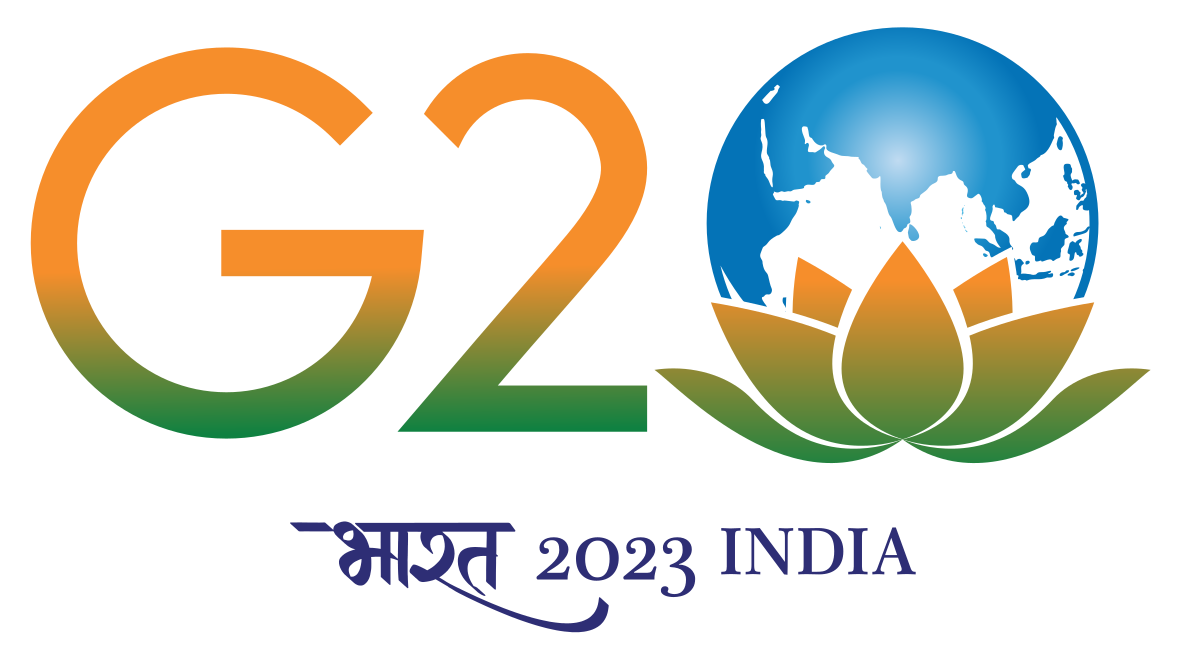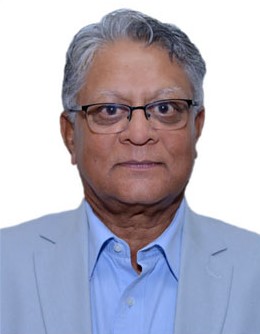Reflections on Delhi G 20 Summit
As the dust and din settles after the very successful G20 Summit hosted by India on 9-10 September 2023, it is time to revisit the key outcomes. The theme of Vasudhaiva Kutumbakam- One Earth, One Family, that share One Future- underlined India’s abiding belief in inclusivity and interdependence- also clearly underlining the complexity of the current global challenges, which surpass the individual capacity of any nation to meaningfully address on its own. This realization lay at the initial convening of this group, coupled with growing realization among G7 members that slowly but steadily the erstwhile developing countries had become the new engines of global growth, and had to be on the high table if sustainable solutions to the global challenges had to be found.
The process:
G 20 by its very nature is a process – with an annually rotating Chairmanship- thus its agenda, focus and emphasis evolve at it passes hands. However, each Chair leaves its own imprint contributing to the future course of deliberations. While the G 20 was formed to deal with emergent issues in the wake of the Asian financial crisis, over the years it has expanded to include practically all major global issues within its ambit and it was upgraded from a meeting of the Finance Ministers to a that of the Head of State/ Government or a Summit level. Though G20 defines itself as the preeminent global forum for international economic cooperation, it can hardly remain oblivious to the strong cross currents of geopolitics, which affect every aspect of human existence, impacting growth and sustainability. Wars and conflicts spread human suffering. It was thus clear that the ongoing Russia Ukraine conflict, which has impacted food and energy security, will cast a long shadow on efforts to arrive at any consensus.
The result:
India achieved a consensus, which throughout the year looked impossible, and much credit is due to its astute diplomacy, and personal standing of her Leadership. The Declaration of the G 20 was a compromise document that avoided singling out Russia for harsh criticism, or indulge in a blame game, though it clearly stated that this is not an era of war. There was also a recognition that every conflict has at least two parties and cornering one does not resolve any problem. Evidently, India’s western partners took a step back in a gesture to India, and the logjam was broken only when the Leaders assembled in Delhi.
India has other reasons as well to be satisfied, since it not only skillfully guided the ongoing discussion in this forum but also refocused the agenda on the issues dear to the developing world. Indian stewardship of the G 20 was marked by a certain degree of realism and ambition given the fractured geopolitical landscape, and the pressing challenges of development which have derailed the Agenda 2030 of Sustainable Developments Goals. The Voices of the Global South Summit hosted by India very early in its term gave a clear indication of India’s priorities and helped refocus G 20`s attention on development. It was in 2010 that South Korean Presidency had brought the ‘development track’ in the G 20 narrative, but it was in need of high-level reiteration.
Time for Africa:
India rightly focused on Africa and the African Union, as a representative of what can rightly be called the continent of the future, and a group of nations critical to the fulfilment of the Sustainable development goals. While much lip service is paid to Africa, it gets neglected in the global discourse and correcting this continuing omission will be a lasting contribution of Indian presidency. Demand for inclusion of the AU in G20 was gaining ground over the last one year, and besides articulation by the AU itself, both President Biden and the EU had supported this aspiration. Nonetheless, India played a key role in bringing this process to its logical conclusion. Soon after the Global South summit (GSS) Indian PM wrote to other leaders making a pitch for this decision to be made at the Delhi Summit. It would have also been desirable to get an endorsement for setting up of the Global South Centre of Excellence that PM Modi proposed at the GSS. India is going ahead with setting it up anyway. PM Modi has suggested another virtual summit before India’s term comes to an end in late November and this will provide yet another opportunity to draw up a development focused action plan (the author was informed there are over 80 action points), and obtain a wider commitment to carry forward the work under the upcoming chairmanship of two major developing economies- Brazil and South Africa- over the next two years.
The Climate:
It appears the crisis of climate change is already unfolding around the world, so rightly it has received strong endorsement along with the need for energy transition. The costs involved are humungous, and the financial commitments remain meagre. In this context the launch of the Bio-Fuel Alliance endorses the need for much needed energy transition. Both, the achievement of global net zero goal and eradication of energy poverty are recurring themes of the G 20 and a key SDG goal. Indian domestic policy orientation is already realigning to these objectives.
The Vision of connectivity:
The other noteworthy announcement came on the sidelines of the G 20 summit: of a railway line across continents, a transit corridor- from the Indian coast and the Gulf, passing through the Middle East and connecting to the Mediterranean ports. No doubt it will be a challenge to implement but it is breathtaking in its ambition and scale, with a potential to unleash unfathomable benefits. This multi modal project connecting Mumbai to Dubai (and Duqm) port and ending at Haifa for further transport to Europe will change the economic, geopolitical as well as the strategic landscape of the region beyond recognition. While many analysts saw this as a rival to the Chinese BRI, it is an idea with great intrinsic value, more so when the global narrative post-covid is focused on equitable, secure and shorter value and supply chains.
The unexplained:
Curiously, tucked away at the very end is a paragraph (para 78) that seems to have escaped most commentators. It seems it was for the first time such a para has become part of the G 20 declaration and its provenance and origin within the G 20 tracks is not clear. It also appears that consensus eluded a precise language since a recent UNGA resolution has been relied upon. A similar reference to a UN document is made in the para on the Russia Ukraine conflict. The under reference UNGA resolution deals with a wide range of issues from freedom of expression, to toxicity of social media, from hate speech to rising bigotry and discrimination etc. Given the lack of clarity on this issue it merits a reproduction of the para for wider dissemination and reflection:
“We note the UNGA Resolution A/RES/77/318, particularly its commitment to promote respect for religious and cultural diversity, dialogue and tolerance. We also emphasize that freedom of religion or belief, freedom of opinion or expression, the right to peaceful assembly, and the right to freedom of association are interdependent, inter-related and mutually reinforcing and stress the role that these rights can play in the fight against all forms of intolerance and discrimination based on religion or belief. In this regard, we strongly deplore all acts of religious hatred against persons, as well as those of a symbolic nature without prejudice to domestic legal frameworks, including against religious symbols and holy books.”
The Conclusion:
Beyond the Summit Declaration, G20 documents run into thousands of pages of recommendations and suggestions, and the final declaration only focusses on some of the important issues which merit attention or decision at the level of the Leaders. Like most multilateral documents, it is replete with mother hood and apple pie statements, and the Leaders underlined that “through these actions today, we are building towards a system that better empowers countries to address global challenges, is human-centric, and brings prosperity and well-being to humanity”. However, success of all such non- binding documents can only be measured against honest implementation of the commitments made at the highest level. The resolve of the global community will be tested over the following years.
Amar Sinha
Amb Amar Sinha, IFS (Retd) is Co-Founder, DeepStrat – Former Secretary (Economic Relations), Ministry of Foreign Affairs & India’s Ambassador to the Islamic Republic of Afghanistan.



